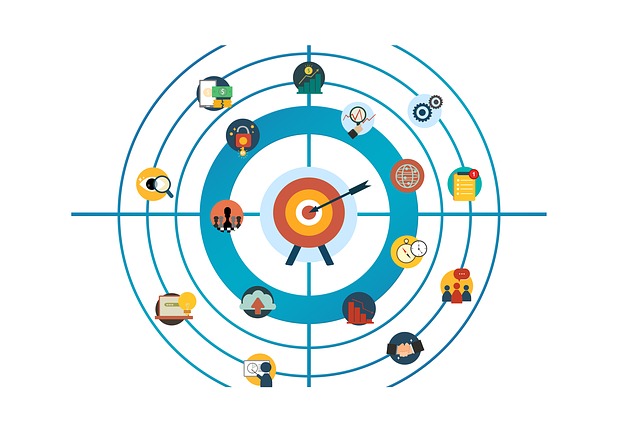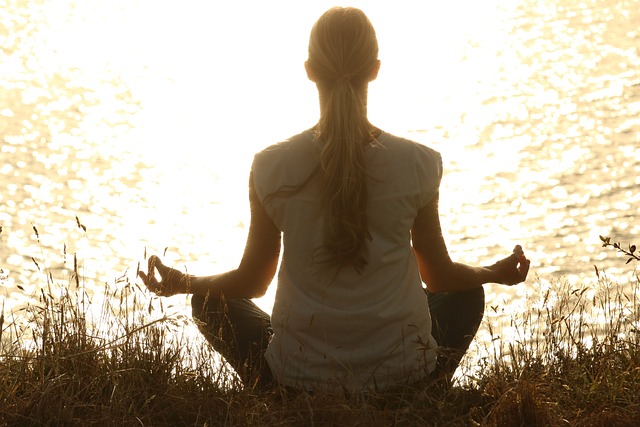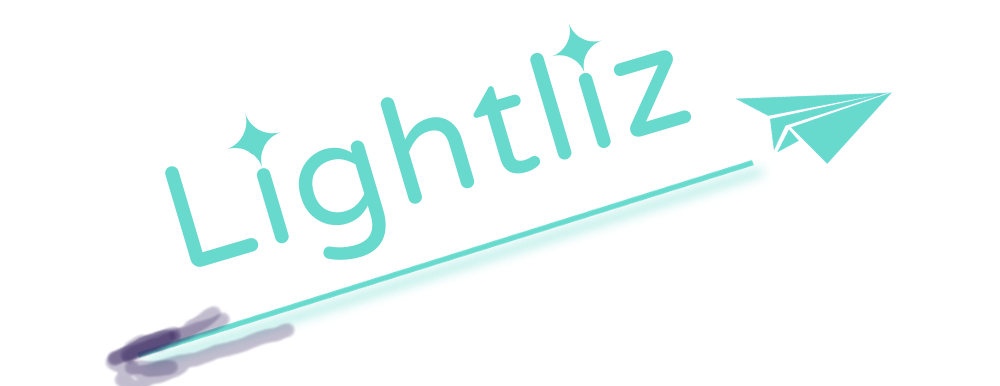What is your life purpose? What does “purpose” mean, and how to find yours? Read on to understand this ambiguous term everyone is talking about, and get tips on finding your purpose.
Your life purpose is the reason you wake up every morning. It can be a job, hobby, volunteering, relationship, or anything else that brings you joy and meaning. There are various life purposes, for different people, at different stages in life, in different cultural contexts. To figure out your purpose, you need to reflect on and consult your work/hobby experiences on an ongoing basis.
The term “purpose” was overwhelming when I began defining my path. There were various interpretations and connotations to the term, so I made this post to clarify things. I investigated the term, explored its multiple meanings on the internet, and served it here. You’ll also find here essential tips to find your purpose based on my self-discovery journey and techniques I found compelling.
After reading the post, I hope you will have a better outlook on life’s purpose and hopefully be more prepared to see it in your life circumstances.
Disclaimer : The information provided in this site is for educational purposes only, and it is not a substitue for professional advice. The article may contain affiliate links. See the full disclaimer for more details.
What Is Life Purpose?
People have asked the question about the purpose of life throughout history, and no one answer fits everyone. In general, life purpose can be defined as the ultimate meaning that someone gives to his life.
For some people, this means finding a specific career or passion and dedicating themselves entirely to it. For others, it might mean raising a family and creating a stable home environment for their loved ones. Others might see their life purpose as making a difference in the world through entrepreneurship, content creation, volunteering, or activism.
There are many meanings and purposes in life, so I tried my best to provide a coherent overview that makes sense. As I see it, there are four main contributors to understanding your life purpose:
1. Bringing Together Your Passions, Talents, and Values

A sense of purpose usually emerges when you harness your talents, passions, and values to inspire and help others. Your passions are the things you like to do the most – painting, sewing, writing, coding, analyzing data, sports, or you name it. Talents are the activities that are easier for you to excel in and be dominant, while values mean doing something for a social cause beyond yourself. Bringing all those together into something concrete in your life is your purpose.
That could be a meaningful job, an enterprise you start for a social cause you believe in, or coaching others with problems you faced and overcame. It could be anything you feel is right for you based on the experiences you have earned so far and the feedback you got on specific skills. In return, you may feel meaning and pride in what you do.
The purpose is usually discovered through a long process of experiencing activities and self-reflecting on them, defining what feels joyful and meaningful for you. Asking for feedback on your talents from colleagues, friends, and family members is crucial. Various personality tests, quizzes, and journaling prompts can help you find your purpose more effectively. The essential thing is being dedicated and consistent on your self-discovery journey.
- Click here to see Why do humans seek purpose?
2. Your Purpose Might Change Over Time

When we are kids or in high school, we usually have a sense of purpose that focuses on life satisfaction. In our 20s to 40s, we tend to find meaning in a career or by becoming parents. When getting to midlife, seeking purpose in that sense become less common. Those who still seek purpose at this point usually do so concerning aging and meaning and might face a midlife crisis. 1
On top of this general distribution, the purpose also changes as you earn more experiences and know yourself better. At some point in life, it is possible that you’d want to rethink your path and decide whether to change a career path or stick with what you have.
Don’t panic if it happens to you; it is part of our growth as human beings, and many people are going through this.
Listen to your gut, and then let your brain decide how exactly to change your life to fulfill the new purpose.
Let’s take the talented productivity YouTuber Ali Abdaal who has an inspiring story regarding changing purpose. He started his career to be a doctor – a classic example of a meaningful job where you may save lives and reduce the suffering of patients. After graduation, he practiced medicine in a hospital in Oxford.
At the same time, he initiated a side hustle as a YouTuber documenting his life as a doctor (which already indicates his outstanding productivity level). Through time he discovered he liked to teach more than being a doctor, so at some point, he boldly decided to leave medicine and focus on his channel full-time.
The video below explains how he found that teaching brought him more joy and meaning, along with fascinating insights on changing purposes and careers, fears, money, and more.
So, you can get from Ali’s story that your purpose might change through new working experiences or hobbies. Of course, many other people stick with the same path they were, and that ok too.
Try to explore what kind of activities bring you more joy and meaning to your life, and then stick with them.
3. Different Cultures Suggest Different Senses of Purpose

Until now, we’ve discussed the composition of your life purpose in standard terms. It’s about time to extend the outlook and includes other visions of purpose outside the core western countries. Several studies have shown that in China, the perception of purpose is divided into three matters: professional, social and moral. In Korea, it was found that young people perceive purpose as a collective matter. 1
Not far away from there, in the Japanese culture, life’s purpose is called “ikigai,” meaning the reason for living. It can be as simple as your job, hometown, nature views, your family, or dedicating yourself to a social cause or ambition.
The traditional concept of ikigai has become famous that so many western life coaches have adopted the idea. Today you can find many articles and clips using the ikigai, though with some adaptation. If you search, you’ll probably see a Venn diagram illustrating what you love doing, what you are good at, what you can be paid for, and what the world needs. However, in the traditional sense of ikigai, your purpose doesn’t have to include all four aspects.
I used the ikigai concept to explore my purpose and found it very effective. It would be helpful to use the approach that can serve you better – the traditional ikigai concept or its Venn diagram.
- You might be interested to know: Does everyone have a life purpose?
4. Spiritual Roots of Your Life Purpose

The term purpose is also associated with spirituality and destiny. The notion that we have a divine gift we need to find has influenced how some people perceive purpose. While it might sound like a mambo-jumbo version of “do what you are most good at,” I think there is more we can take than this general spiritual notion.
Life’s purpose has been traditionally interpreted by the three central monotheist religions as serving God, following his commandments, and helping others. Many believers derive meaning from an entirely religious lifestyle. Others combine some of these values with the modern sense of purpose via a career. Several studies have proven that conservative religiosity is associated with a sense of life purpose. 2
While I’m secular, I appreciate the traditional approach to purpose. In a modern world that glorifies individual success, it can be soothing to pause once in a while and get a larger perspective on our limited part as individuals.
Buddhism suggests another spiritual meaning of purpose – freeing yourself from suffering by overcoming the desires and illusions of your life. In his book, “The Art of Happiness,” the Dalai Lama explains that everyone has the right to be happy and happiness comes from a sense of self-fulfillment and inner peace. Nowadays, many people around the globe practice meditation and other Buddhist techniques to get inner peace. Interestingly, that includes people who aren’t officially Buddhists.
Finally, we’ve got the new age and spirituality trends. Two of the most prominent spiritual practices are astrology and numerology. With astrology, you can find interesting aspects of yourself based on your zodiac. In contrast, with numerology, you can find clues about your purpose by analyzing your name characters and birth date numbers.
Some see these pseudosciences as very gimmicky, and I agree we should not take horoscopes and “spiritual quizzes” too seriously. Nevertheless, the cool thing with astrology and numerology is that they don’t require too much energy from you. You fill in several details and immediately get hidden insights about yourself.
- Discover now how to reduce the risk of existential crisis
Benefits of Knowing Your Purpose
There are many benefits to knowing your life purpose, including a sense of clarity and direction. Once you know your purpose, it becomes easier to make decisions that align with that purpose and stay on track with your goals.
Another benefit is greater satisfaction and fulfillment. Achieving your goals or completing tasks that align with your purpose can lead to a sense of joy and pride that you may not have experienced before.
Research suggests that a sense of purpose can improve your health and wellness. Older women who reported a higher level of purpose in a study had lower levels of the stress hormone cortisol, which is known to be associated with several health problems. Having a purpose in life might also help you succeed. A Series of recent adolescent studies have shown that a strong sense of purpose is associated with better academic outcomes. 1
Finally, finding and living your purpose may increase motivation and resilience. Knowing why you do what you do can give you the reason you need to get through tough times. Even in the most challenging life circumstances, finding a purpose is possible and essential to your health. The holocaust survivor Victor Frenkel explained this in his best-seller book: “Man’s Search for Meaning” (view on Amazon).
If you wish to learn more on this, I wrote an entire post on the benefits of knowing your purpose.
How to Find Your Life Purpose?
So, now you know better what the ambiguous term “purpose” means. But how can you find yours? What are the most effective ways to do so?
I formulated a step-by-step scheme based on my journey with finding purpose and insights I got from self-discovery books. You can save it for later to your Pinterest account (click the “save” button):
Step 1 – Locate your impact zone
As you can see in the diagram above, the first thing to figure is your impact zone. Where do you feel you can make a defference? Where you want to do so? Your career, hobby, community initiative?
This suppose to guide you where you should put your exploration efforts.
Step 2 – Explore your ideal work vibe
Then you can try to understand your ideal work vibe. Not the titles of the job but the dynamics in which you feel better. What projects make you forget about the time? What environments lead you to excel?
Try answer these essential questions before you move ahead. Then, later, you can focus on your favorite vibes and think how you can find a path that exclusively derived from those work vibes.
Step 3 – Self reflect at your activities
Remember that answering these questions comes from an ongoing process of self-reflection. It’s difficult to figure it out without documenting your experiences for a while. Observe your experiencess you have in different projects and work vibes and then decide on your aces.
So, this is the exploration steps you can take by your own. However, in many cases that’s not enough.
Step 4 – Consult with friends and professionals
It is possible to figure out your purpose independently, but it might be complex and overwhelming. You might want to talk with family members and friends about their experiences in life and their goals too. That can provide you with some examples to relate to. Those who know you well might also give you feedback on the skills you are best at.
Talking with a life coach, mentor, or therapist can help you even more. During my existential crisis, I’ve seen a therapist who helped me access my feelings and thoughts about my career. That played a massive part in my self-discovery journey and reinventing myself as a content creator.
Being alone with thoughts on your purpose can be overwhelming. Coaching or therapy sessions can help you find clarity by discussing your thoughts and feelings about different aspects of yourself and your careers, such as strengths and weaknesses, passions, and meaningful moments.
Step 5 – Journal your thoughts
That said, you can try to explore your purpose on your own, for example, by journaling. Write down your dreams and what you hope to achieve in the future. In addition, every day, reflect on your experiences at work. That inclueds what you liked and what projects made you forget that you are working. Once you know what makes you feel good about yourself, finding your purpose that will be easier. If you wish, many other journal prompts can help you define your purpose further.
Taking personality assessment tests can also help. These can help identify your personality type and interests, giving insight into what kind of work would suit you best.
My purpose in this blog is to make the process of exploring your purpose more effective and fun. I’ve done so by providing authentic reflections on my journey and self-discovery tools I tried and found effective.
Conclusion

Purpose is such an ambiguous term. It made me so confused and overwhelmed when I started my self-discovery journey. The term has various connotations and meanings, so I organized them here. I hope this will assist you in beginning your journey more prepared.
Your life purpose is the “why” of your life. The reason you get up in the morning with the motivation to go forwards. It’s everything that makes you feel happy about who you are, regardless of what other people think or say.
I further demonstrated how different cultures and spiritual traditions also cast meanings on the term purpose. Knowing the broader context of your purpose can balance your life and get a broader sense of your purpose. In particular, spiritual practices like meditation can help you become more connected to yourself and ready to find your purpose.
There is no right or wrong answer to the question of purpose, as everyone’s life purpose will differ. Ideally, though, your purpose will consist of something beyond your joy. That could be taking care of somebody, having children, helping the community, coming up with a solution to a problem in your field, or becoming a public servant.
In the end, helping others can help you feel meaningful and proud of yourself. All you need to do is realize how you do it in a way you enjoy.
Here you can start exploring your purpose effectively with various self-discovery techniques.
If you like the guide, disagree with something I said, or want to add a note, I would like to know! Kindly comment in the comments section below.
Shachar is a blogger and sensitive person who worked in a recruitment company and holds a master’s degree in sociology. After years of struggles to find purpose, he made this blog to help others find their purpose more efficiently. He likes to play chess, walk in nature, and take photos in his free time.
- John Templeton Foundation (2018). The Psychology of Purpose: Claremont Graduate University. https://www.templeton.org/discoveries/the-psychology-of-purpose[↩][↩][↩]
- Dufton, B.D., Perlman, D. (1986). The Association between Religiosity and the Purpose-in-Life Test: Does it Reflect Purpose or Satisfaction? Journal of Psychology and Theology, 14(1), 42-48[↩]


